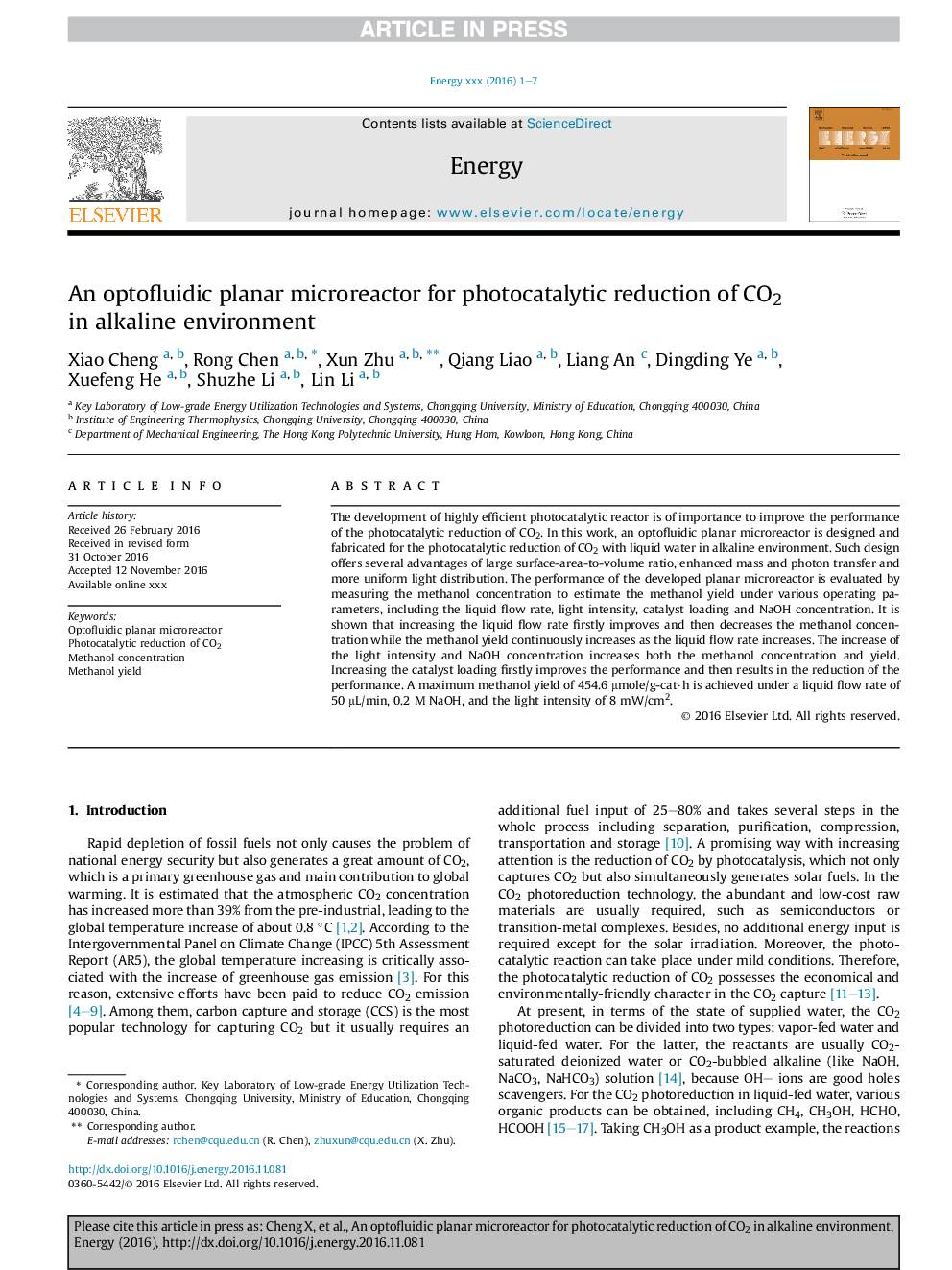| Article ID | Journal | Published Year | Pages | File Type |
|---|---|---|---|---|
| 5476164 | Energy | 2017 | 7 Pages |
Abstract
The development of highly efficient photocatalytic reactor is of importance to improve the performance of the photocatalytic reduction of CO2. In this work, an optofluidic planar microreactor is designed and fabricated for the photocatalytic reduction of CO2 with liquid water in alkaline environment. Such design offers several advantages of large surface-area-to-volume ratio, enhanced mass and photon transfer and more uniform light distribution. The performance of the developed planar microreactor is evaluated by measuring the methanol concentration to estimate the methanol yield under various operating parameters, including the liquid flow rate, light intensity, catalyst loading and NaOH concentration. It is shown that increasing the liquid flow rate firstly improves and then decreases the methanol concentration while the methanol yield continuously increases as the liquid flow rate increases. The increase of the light intensity and NaOH concentration increases both the methanol concentration and yield. Increasing the catalyst loading firstly improves the performance and then results in the reduction of the performance. A maximum methanol yield of 454.6 μmole/g-cat·h is achieved under a liquid flow rate of 50 μL/min, 0.2 M NaOH, and the light intensity of 8 mW/cm2.
Related Topics
Physical Sciences and Engineering
Energy
Energy (General)
Authors
Xiao Cheng, Rong Chen, Xun Zhu, Qiang Liao, Liang An, Dingding Ye, Xuefeng He, Shuzhe Li, Lin Li,
